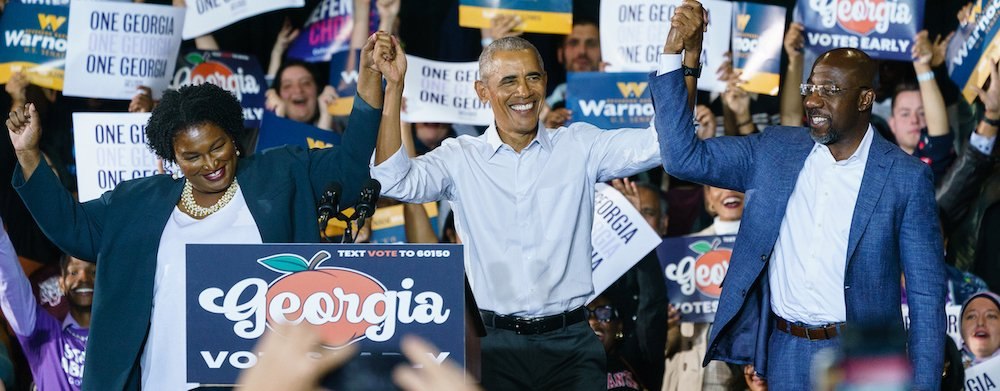The latest Economist/YouGov Poll finds that among likely voters, Democrats and Republicans are neck and neck when it comes to the congressional candidate people intend to vote for, or say they lean toward voting for: Each party gets 49% of the vote.
ELECTION INTEREST AND VOTING
With only one week remaining before the election, many Americans are paying close attention to who is on the ballot. More than nine in 10 likely voters (94%) are paying attention to the campaign, including 61% who are paying “a lot” of attention; four weeks ago just 48% of likely voters were. On this question, there is little difference between the parties’ likely voters.
Republicans do have an advantage on other voting-related questions: 46% of Republicans report being more enthusiastic about voting this year than usual, compared with 35% of Democrats. More Republicans care “a great deal” about the election's outcome — 67% — than Democrats (54%). Republicans are also more likely to expect the outcome will be in their favor. Most Republicans (55%) believe that as a result of next week’s election, Republicans will win control both the House of Representatives and the Senate. Only one-third of Democrats (33%) believe their party will retain control of both chambers of Congress, and just half (48%) think their party will remain in control of the Senate; 30% of Democrats are unsure.
In terms of the issues that are top of mind when casting a ballot this year, more likely voters say they're thinking “a lot” about the economy (71%), inflation and prices (70%), or crime (59%) than about abortion (51%), jobs and unemployment (42%), or climate change (39%). Likely voters are somewhat more likely to be thinking a lot about Joe Biden (46%) than about Donald Trump (37%). However, thinking about each of the two presidents — the former and the current one — is about as common among Democrats as among Republicans.
In terms of when and how people say they will vote, Republicans have an advantage over Democrats in who will vote in-person on Election Day: 44% of Republican likely voters say they will vote in person on Election Day, compared with 29% of Democrats. Democratic likely voters, meanwhile, are nearly twice as likely as Republicans to say they plan to vote by mail (48% vs. 28%).
A separate poll conducted by YouGov asked Americans how they're feeling about the upcoming election, and found that "anxious" is the most widely felt descriptor, selected by 37% of American adults — including a larger share of Democrats (44%) than Republicans (37%). Republicans, on the other hand, are more likely than Democrats to say they feel excited (33% vs. 24%). Respondents in the poll could select as many of 10 words offered that apply to their feelings ahead of the election.
BIDEN AND TRUMP
Only one in four Americans — including just 46% of Democrats — say they want Joe Biden to run for president again in 2024. A similar share of Americans want Trump to run again (28%, to 24% for Biden), though more Republicans (52%) want him to run again than the share of Democrats who say this about Biden.
Looking back over the past two years, however, Americans are generally supportive of four of Biden's major policy actions: pardons for marijuana possession (66% support, 23% oppose), withdrawing troops from Afghanistan (57%, 28%), components of the Inflation Reduction Act (55%, 31%), and forgiving student loans (51%, 41%). Big majorities of Democrats are in favor of each of these measures — which were described without the name of Biden or anyone else attached to them — while Republicans' opinions of them vary. Around half of Republicans support each of marijuana pardons (55%) and troop withdrawals (46%), but fewer favor the Inflation Reduction Act (34%) or student loan forgiveness (26%).
AFTER THE ELECTION
Should the Republicans control Congress after the election, what do Americans expect will happen? Just 36% think abortion will be outlawed nationally — including 55% of Democrats and 17% of Republicans. A majority of Democrats (55%) expect government spending on social services will be reduced, as do 32% of Republicans. More Republicans (52%) than Democrats (12%) think inflation will go down.
One in four expect an impeachment of Biden if Republicans take control of both chambers of Congress, and this expectation is about as common in each major party: 29% of Democrats and 32% of Republicans think this will happen. Larger shares in each party expect a decrease in aid to Ukraine: 45% of Democrats and 36% of Republicans say this. One-third of Democrats (32%) anticipate a government shutdown if Republicans gain control, compared to just 9% of Republicans. One of the biggest party gaps comes on COVID-19: 33% of Democrats and 4% of Republicans expect case counts to rise if Republicans take control of Congress.
More Americans prefer a member of Congress who will compromise (61%) than one who will stick with their principles (39%), though Democrats hold this preference more strongly than Republicans. Nearly three in four Democrats (72%) say they prefer a politician who compromises, compared to 47% of Republicans.
This pattern is even starker when broken down by the strength of a person's party identity. People who identify as "strong Democrats" are equally as likely as "not very strong Democrats" to prefer compromise, while "strong Republicans" are far less likely than "not very strong Republicans" to say this.
– Carl Bialik and Linley Sanders contributed to this article
Polling by the Economist/YouGov was conducted on October 29 - November 1, 2022 among 1,500 U.S. adult citizens. Explore more on the Economist/YouGov methodology and data.
Image: Getty (Elijah Nouvelage)












